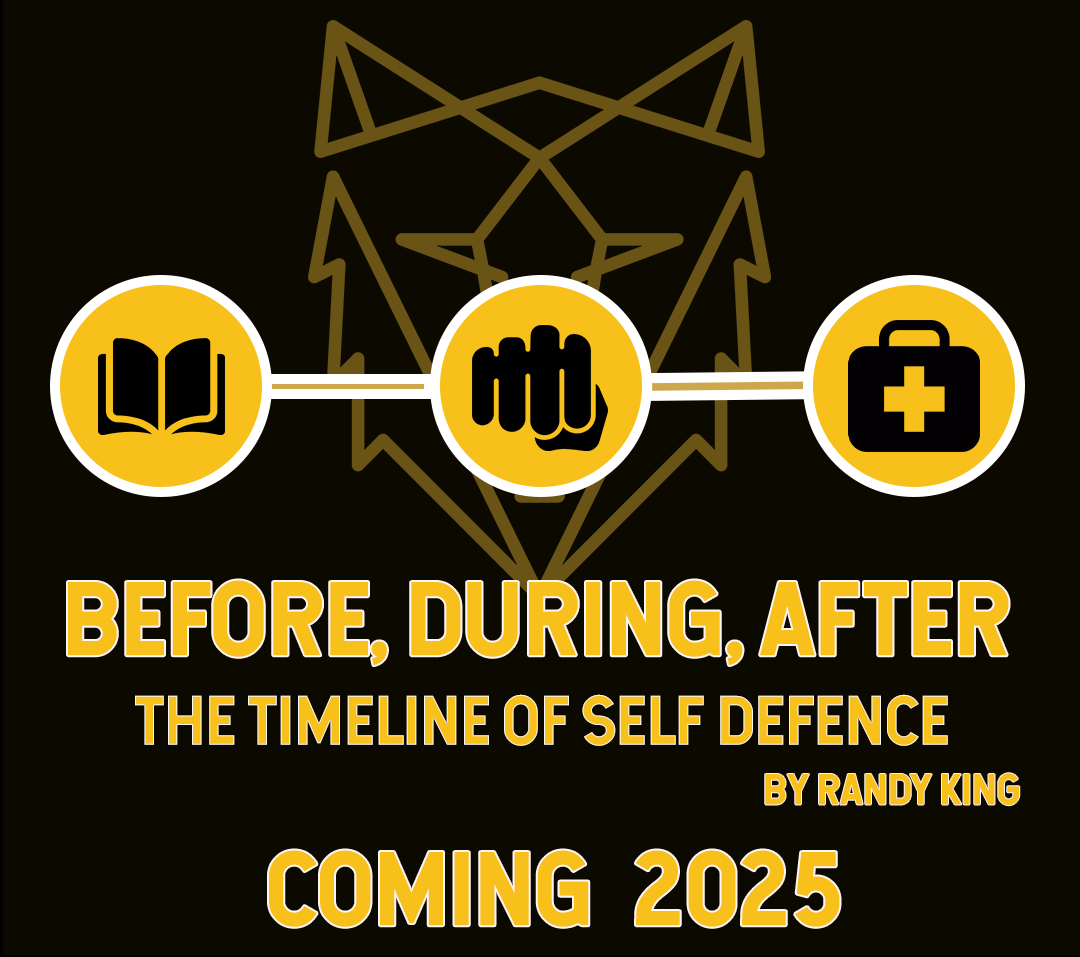Thoughts on Conflict Management in the Modern World

Think you know self-defense? Think again! Discover the 7 deadly sins of self-defense—common myths and mistakes that could leave you vulnerable in real-world situations. From debunking the 'stranger danger' myth to avoiding quick-fix gimmicks, this post dives into the smart, practical, and actually effective ways to stay safe. Read on to learn how to train smarter, not harder!

Hey everyone, Randy King here. Today, we’re talking about manipulation. Yeah, the sneaky little tactics people use to get what they want at your expense. You might think of manipulation as something that happens in big, dramatic ways – maybe in abusive relationships or some high-stakes con job – but the truth is, manipulation shows up everywhere. In fact, it can be so subtle, you might not even notice it until it's too late. Whether you're dealing with pushy salespeople, sketchy dates, or toxic coworkers, knowing the signs of manipulation is a key part of self-defence. These aren't physical moves to protect yourself, but they're just as important. Manipulators don’t need fists—they use words, guilt, and pressure to steer you into doing things you don’t want to do. The good news is, once you understand these tactics, you can defend yourself mentally just as well as you would physically. So, let’s dive into seven common manipulation tactics and talk about how you can recognize and block them before they mess with your head. 1. The “Scarcity” Tactic You’ve probably seen this one in sales ads: “Only three left! Act now or miss out forever!” But it’s not just for retail; people use this in everyday conversations too. How It Works: The manipulator makes it seem like you’re about to lose something special if you don’t act fast. Maybe they tell you, “I don’t open up to many people,” or “I’m not staying around long, so let’s meet up now.” They’re making you feel like this opportunity is rare, and you’ll regret missing it. How to Defend Against It: Remember that anything real—be it a friendship, a relationship, or an opportunity—won’t vanish if you take your time. If someone is pushing you to act fast or making you feel like you’ll lose something if you don’t, take a step back. Don’t let that pressure dictate your decisions. 2. The “Guilt Trip” Post Ever had someone guilt you into doing something you didn’t want to? This is one of the oldest tricks in the book. How It Works: The manipulator subtly—or not so subtly—puts the blame on you for their feelings. It might sound like, “I’ve been treated so badly by everyone… please don’t let me down too.” You feel like it’s your job to make up for all the wrongs in their life. How to Defend Against It: You are not responsible for someone else’s emotional well-being, especially if they’re using it as a weapon against you. Recognize when someone’s playing the guilt card and remind yourself that their feelings aren’t your burden to carry. Keep your boundaries strong and don’t fall into the guilt trap. 3. The “Flattery with a Hook” Who doesn’t like a compliment, right? Well, some people use compliments to manipulate you into doing what they want. How It Works: The manipulator tells you something flattering—“You’re so smart, I bet you’re the only one who could understand me.” But there’s always a catch. They want you to prove yourself worthy of the compliment by engaging with them or doing what they ask. How to Defend Against It: Be cautious when compliments come with strings attached. Genuine flattery isn’t followed by expectations. If someone makes you feel like you need to live up to their praise, recognize it as manipulation and don’t feel obligated to meet their demands. 4. The “Pity Party” This tactic is all about making you feel sorry for someone so that you lower your defenses. How It Works: They spin a sob story about how they’ve been wronged by the world, hoping you’ll step in and help them out. “I’ve been so lonely; no one cares about me,” or “Everyone’s abandoned me.” The goal is to get you emotionally invested and make you feel like you owe them your attention or time. How to Defend Against It: Compassion is great, but when it’s being used as a weapon against you, it’s not okay. If someone’s story makes you feel obligated to step in or engage in a way, you’re uncomfortable with, take a step back. Evaluate whether the situation is real or if they’re just manipulating you for attention. 5. The “Challenge” Post This one’s designed to make you feel like you need to prove something. How It Works: They throw out a challenge: “Most people aren’t strong enough to handle me,” or “I bet you’re not brave enough to respond to this.” They’re banking on the fact that you’ll feel compelled to engage just to prove them wrong. How to Defend Against It: You don’t need to prove anything to anyone. Challenges like this are just baited to get you hooked. Stay confident in your choices and don’t fall for the ego trap. Walk away and save yourself the headache. 6. The “You’re the Only One Who Understands” Post This is a sneaky way to make you feel special and isolated at the same time. How It Works: They tell you that you’re different from everyone else, that you “get them” in a way no one else does. It’s designed to create an artificial bond and make you feel like you need to stick around to keep being that special person. How to Defend Against It: Real connections are built on mutual respect, not manipulation. If someone is trying to single you out as the only one who understands them, it’s likely a trap. Stay grounded and don’t let their isolation tactics control you. 7. The “Negging” Approach Negging is a favorite tactic of some shady people, especially in dating. How It Works: They insult you, but in a way, that’s supposed to sound like a compliment. “You’re pretty cute for someone who doesn’t try hard,” or “You’re smart, but I bet you wouldn’t be able to keep up with me.” The goal is to make you The key to protecting yourself from these manipulation tactics is awareness. Once you know the tricks people use to push you into uncomfortable situations, you can see them coming from a mile away. Remember, real connections don’t need pressure, guilt, or flattery hooks to work. Boundaries, self-respect, and the ability to say “no” are just as crucial in everyday interactions as they are in self-defence. Keep these tactics in mind the next time you feel something’s off and trust your instincts. Defend your mind as fiercely as you’d defend your body, and you’ll be better equipped to handle whatever comes your way. -Randy






